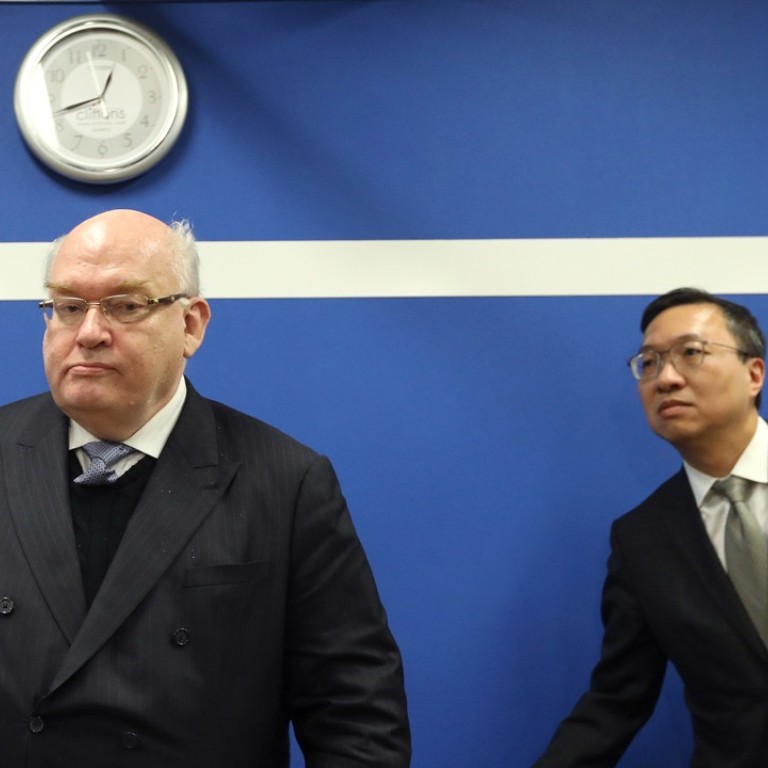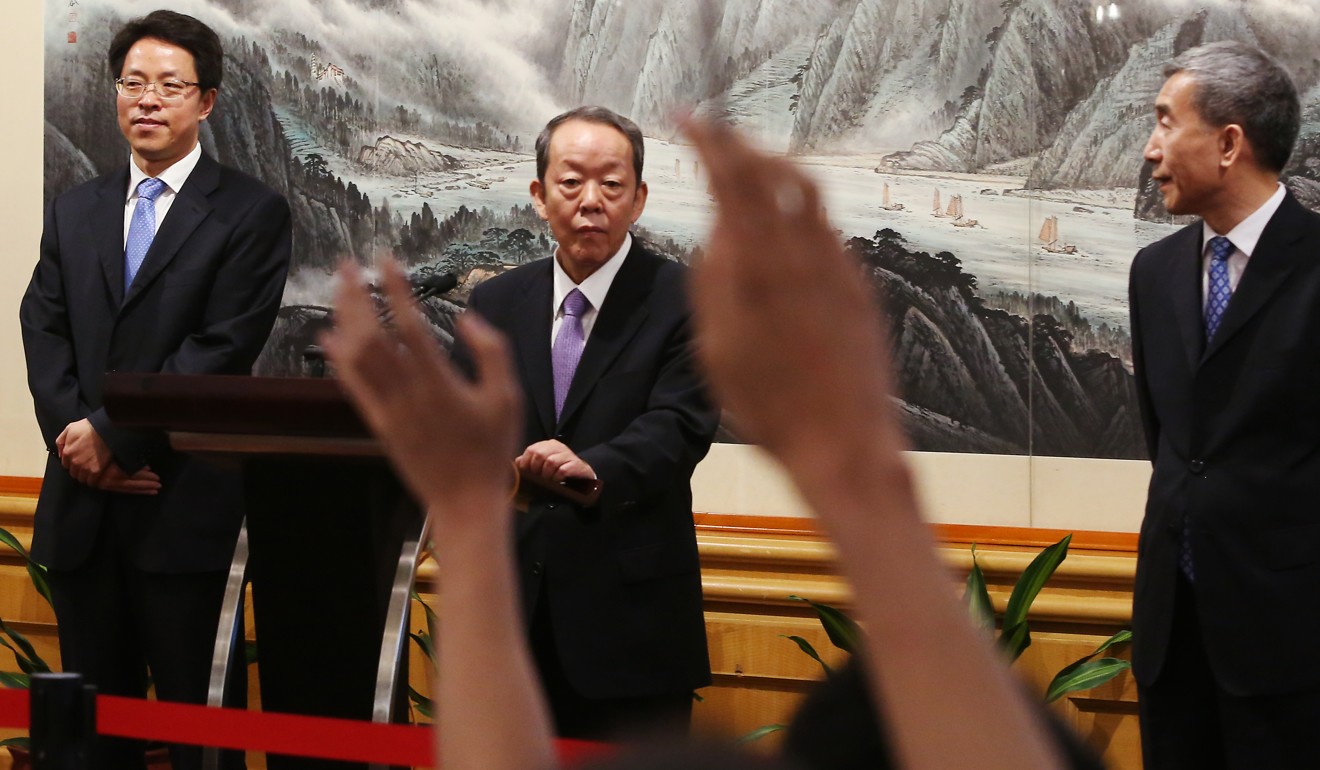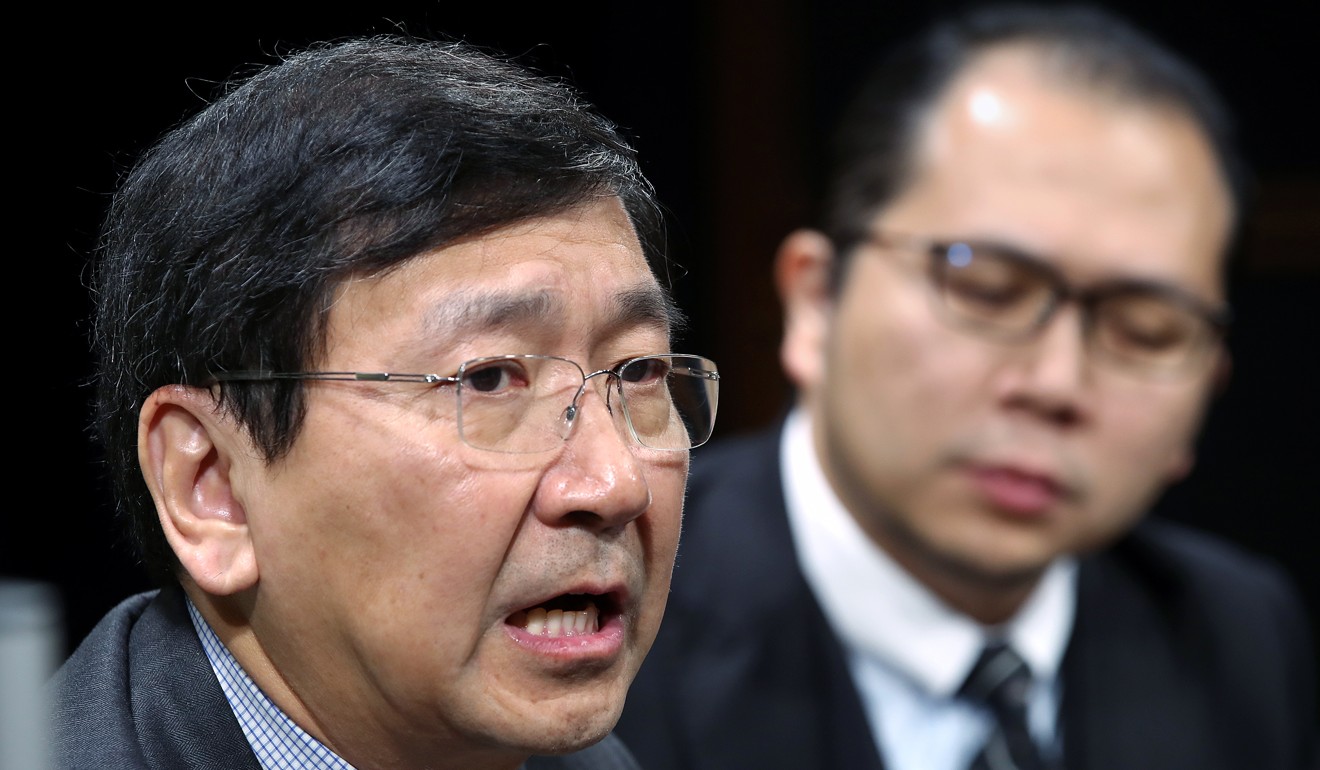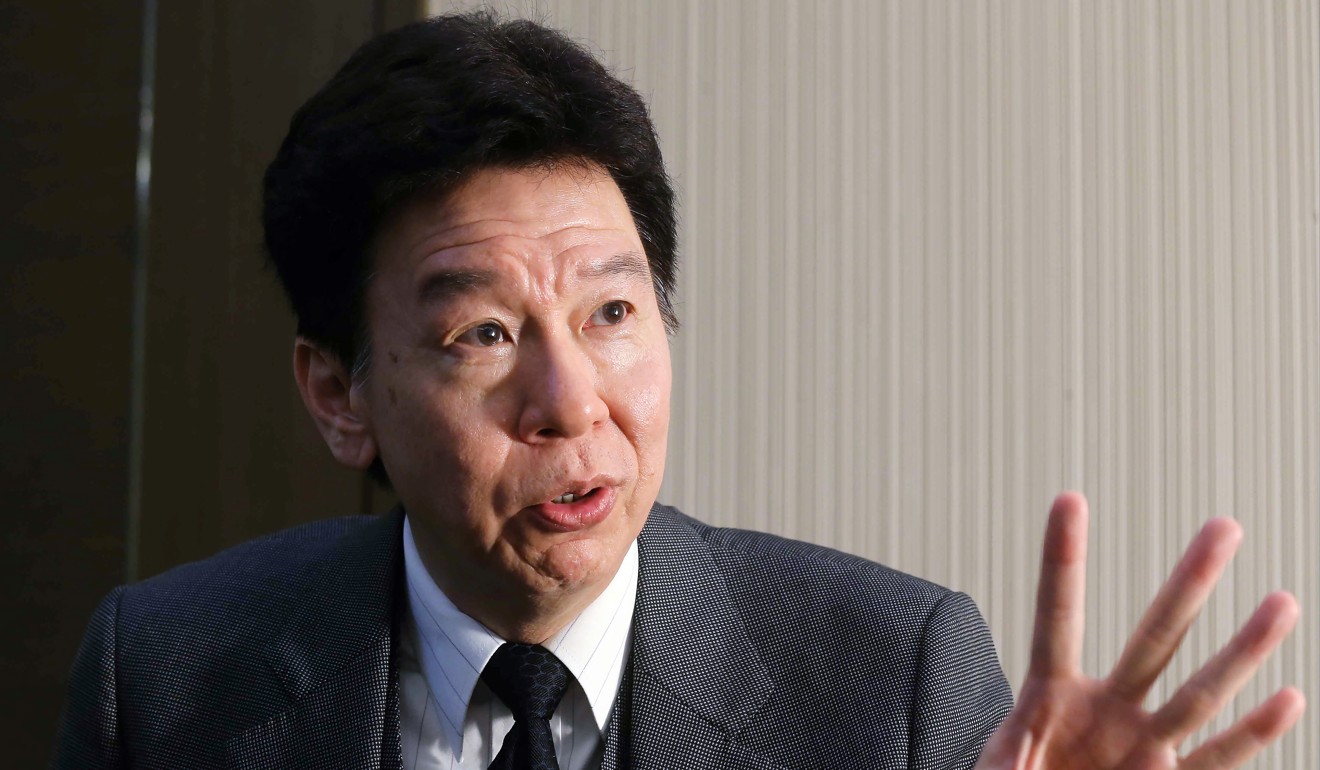
Will the new leaders of the Hong Kong Bar Association be any more effective with Beijing?
A look at what local and mainland experts are saying about the prospects for success
The upset victory that prominent human rights lawyer Philip Dykes secured on Thursday night in the Hong Kong Bar Association election raised a question many have pondered: could the influential group get its messages and concerns about implementing “one country, two systems” across more effectively to Beijing than its predecessors?
The association pays an annual visit to the Chinese capital to meet key officials overseeing Hong Kong affairs. Last November, it met Zhang Xiaoming, director of the State Council’s Hong Kong and Macau Affairs Office, as well as Li Fei, chairman of the Basic Law Committee, which falls under China’s top legislative body.

While it did not appear that Beijing changed its mind about the legality of the arrangement, the visit was regarded as a chance at least to convey Hongkongers’ apprehensions to the central government.
Legal experts in Beijing
Tian Feilong, associate professor at Beihang University law school in Beijing, believed there would be more conflicts between the association and the central government relating to the implementation of one country, two systems.
“The association must leave behind its arrogance and learn to understand Beijing’s comprehensive jurisdiction over Hong Kong,” Tian said. “There must be respect.”
The association must leave behind its arrogance and learn to understand Beijing’s comprehensive jurisdiction over Hong Kong
Li Xiaobing, associate professor of law at Nankai University in Tianjin, said he was not optimistic about the association’s relations with Beijing. He thought damage had already been done by the group’s “emotional” statement last month criticising a decision by China’s top legislative body endorsing the joint rail checkpoint in West Kowloon.
In a statement that many in the city’s legal sector regarded as coming too late, the association said the Basic Law was being “irreparably breached” and the rule of law “severely undermined” by the decision.
Li said the mainland had learned extensively from Hong Kong’s legal system over the years and that it was now time for the city to learn about the mainland’s system.
New Bar Association leaders
Fresh from his victory, Dykes said there was no reason for the association’s relationship with Beijing to deteriorate under his leadership. He said he already forged good ties with the mainland a decade ago during his previous stint as bar chairman.
University of Hong Kong legal academic Professor Johannes Chan Man-mun, a newly elected association council member, did not think the leadership change would affect the group’s relations with Beijing.

“The association has always maintained a professional relationship with Beijing,” he said. “It represents barristers as a whole and not individuals, so I don’t see how there would be any change ... No matter who takes the helm, it would not affect our communication [with Beijing].”
Chan added that the group’s professional exchanges and tours to Beijing had gone on for several decades, and he saw no reason for them to come to a halt.
Who’s who in the new Bar Association leadership, and what’s next on their list of challenges?
He said he would consider bringing up the association’s views on the controversial joint checkpoint plan during its official visits to Beijing, and would push for more opportunities for direct communication with authorities.
Hong Kong politicians who are barristers
Barrister and Civic Party leader Alvin Yeung Ngok-kiu also believed there would be no change in relations between the association and Beijing.
“Exchanges between the association and the mainland did not just pop up in the previous term, but have lasted for years,” he said, adding that the traditions would be passed on.
City’s barristers want Bar Association to ‘step up to the plate’ on constitutional matters, says one of its new leaders
Yeung noted Dykes had chaired the group before and that no barriers to exchange existed then.
Pro-Beijing lawmaker Priscilla Leung Mei-fun, also a barrister, urged the new leadership to think about its approach in dealing with the central government. That was because the legal sector in Hong Kong viewed the Basic Law and the mainland’s constitution differently than people across the border.
It would be too much to ask for Beijing to accept your views as impartial
“If you just insist on your views from your common law practice, the large gap will remain, with Beijing having the final say,” Leung said.
“Under the high degree of autonomy Hong Kong enjoys, we could preserve common law practice in most cases.”
Executive councillor Ronny Tong Ka-wah raised a different concern. He thought some of the new leaders had been helping the city’s pro-democracy camp in court cases, creating a perception they were inclined to side with the camp.
“It would be too much to ask for Beijing to accept your views as impartial,” the former Civic Party lawmaker said.
As a one-time association chairman himself, Tong added he would not allow the cases he takes up to undermine the credibility of his views.
On the issue of perceived conflict of interest and addressing sensitive political issues, Leung believed both association members and the public would monitor the group’s leaders, saying it was too early to judge.
Other local legal sector voices
Stephen Hung Wan-shun, a former Law Society president, said a legal professional body should be “apolitical” and express its views from “a legal perspective” rather than in a political manner. Declining to comment directly on the new leadership, Hung espoused a balanced view as important given that legal questions came with multiple viewpoints.
When Dykes chaired the association in 2005, Hung served as a council member in the society. Hung believed whomever chaired the body would not change the working relationship between the two entities, nor the relationship with Beijing.

“It hinges on the whole council, not only on the man who chairs the council,” Hung said, adding there were specific people and staff at the society assigned to handle mainland affairs.
Cheng Huan SC said Dykes was tasked to maintain the association’s independence in divisive political issues. He believed there was always a danger of people masking their politics behind legal issues.
Cheng added that the new members had in their election manifestos made many wide-ranging and sensible proposals on livelihood issues to help new and young barristers in particular.
“I hope they will spend more time implementing these,” he said, noting he would reserve judgment on the leadership until the association’s next annual general meeting in 2019. “Time will tell.”



